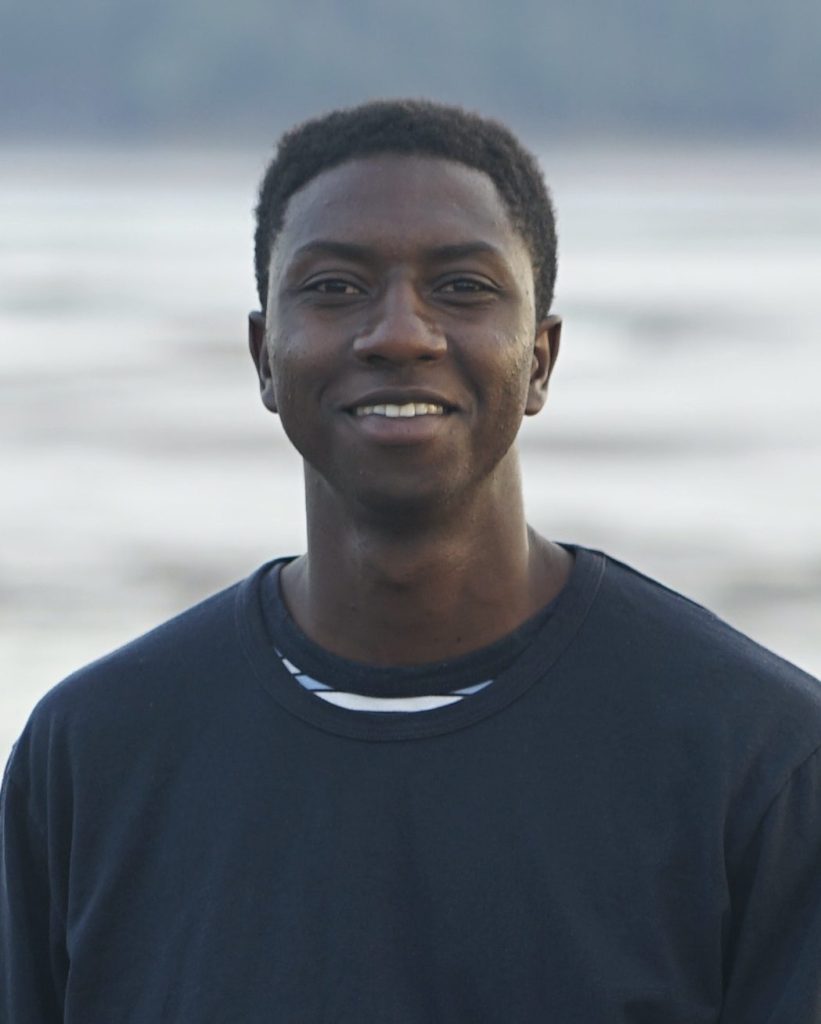Student Portraits
October 6, 2021
IVADO Student Portraits – Sékou-Oumar Kaba
Our “IVADO Student Portraits” initiative consists of meeting students from our community to share their backgrounds, motivations and ambitions! We sat down with Sékou-Oumar Kaba, who’s studying toward his PhD in computing at McGill University and at Mila, the Québec AI Institute.

- Can you tell us a few words about yourself?
My name is Sékou-Oumar Kaba, and I’m currently a PhD student in computing at McGill University and at Mila, the Québec AI Institute. My thesis director is Professor Siamak Ravanbakhsh. I grew up in Québec and I’m originally from Guinea.
- Tell us about your academic journey.
I didn’t start out in computing and statistics, but in physics. I did a bachelor’s degree in that field at Université Laval, and then a master’s at Université de Sherbrooke and its Institut Quantique. My master’s work was in modelling of superconducting materials using numerical and mathematical methods. I later worked for a while as a data scientist before deciding to go back to academia and do a PhD.
- What motivated you to choose digital intelligence?
First of all, the fact that right now it’s such a vibrant and scientifically stimulating field. In the past few years we’ve seen all kinds of developments in artificial intelligence, but some fundamental questions remain unanswered: Can an algorithm truly demonstrate intelligence and creativity? Can we guarantee the performance and safety of AI-based systems? Besides matching my interests, this field was a good fit with the skills I’d acquired as a physicist and from my work experiences. I would say that digital intelligence is a field accessible to people from any other field, provided that they have some interest in programming. Last but not least, because this field is expanding so rapidly, there’s no shortage of opportunities, so that’s another factor that encouraged me.
- What are you working on for your research project?
I’m working with Professor Ravanbakhsh on applications of machine learning to problems in physics. For the first part of my PhD, I’m working on predicting the properties of materials using deep learning. The idea is that a material’s properties, like electrical conductivity or strength, are determined by the atoms that constitute it. To obtain those properties, however, requires physics calculations that are extremely resource-intensive and time-consuming. My project aims to harness the data we already have on hundreds of thousands of materials. An AI algorithm can use those data to understand the relationships between a material’s chemical structure and its properties. We therefore hope to be able to use these methods to help discover new materials.
- Any particular qualities that are serving you well for this project?
Curiosity, communication skills and determination are all qualities that are essential to my research. Solutions to research problems sometimes come from unexpected places, where you’re led by sheer curiosity or simply by a desire to experiment. Communication skills are also important because scientific work gains value when it’s shared with other researchers. In a multidisciplinary field like mine, making sure everyone understands each other is a constant challenge. Lastly, determination is essential because a research project seldom proceeds without some surprises along the way.
- What are your ambitions for the future?
I’d like to continue doing research. Teaching is also a field that speaks to me; I find transmitting knowledge and sparking interest to be inspiring. So I’d like to progress in academia and become a professor. At the same time, I also want to work at making the benefits and especially the fun of science more accessible to the public. Science is often seen as an ivory tower, and to me that’s an image that needs to be dispelled.
- Any resources to share?
There’s an excellent interview with the President of Mila, Valérie Pisano, on the podcast Femmes en affaires, which I recommend. Among other things, she discusses the role that AI research could play in social and environmental issues. I’m also a fan of the Science en questions program, hosted by physicist Étienne Klein.
- What is this project bringing to you on a personal level?
Research is a human adventure; that, to me, is one of the most important aspects. I’m fortunate to be working with impassioned people from diverse backgrounds and settings. It’s an opportunity to develop great friendships and to learn more about other cultures. But it’s also learning about yourself. You’re constantly testing your limits, and that makes you both more humble and more confident in your abilities.